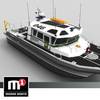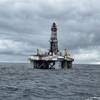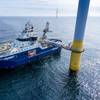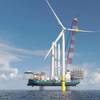FAST 2011: Addressing Speed on the Water
FAST 2011 is the 11th International Conference on Fast Sea Transportation. Started in Trondheim, Norway in 1991, FAST conferences take place every two years and are the world’s leading conferences addressing fast sea transportation issues. Recent FAST conferences were held in Athens, Greece (2009), Shanghai, China (2007), and St. Petersburg, Russia (2005). According to Todd Peltzer, director of programs for Honolulu-based Navatek, FAST 2011 will be held in Honolulu, Hawaii, from September 26 to 29, 2011, at the Regency Ballroom Convention Center of the Hyatt Regency Waikiki hotel. Registration for the conference is available through the FAST website: http://www.FAST2011.com/registration.htm.
“We’ve negotiated special room rates at the Hyatt for conference attendees, which can be booked through the conference website (click on the “Accommodations” link), or by contacting the hotel directly and referring to ‘FAST 2011 Conference,’” Peltzer says.
The conference brings together specialists from all over the world in all fields of naval architecture and marine engineering, including hydrodynamics, structures, ship design, propulsion, and safety to present and discuss the current state of the art, the most recent research results and technologies, trends and future needs and opportunities that relate to fast ships.
According to Peltzer, maritime professionals—scientists, engineers, and operators—interested in these topics will benefit from attending FAST 2011. “You won’t find another conference that brings together such a diverse spectrum of disciplines addressing a common theme—speed on the water!”
The focus of the conference program is clearly technical in nature, but Peltzer says you don’t have to be a PhD to get a lot out of the conference.
The technical program at FAST 2011 will cover a broad range of topics related to high-speed craft of all types, including new fast ship concepts and hull form designs; metallic and composite materials; structural response (slamming, whipping, impact, fatigue); structural health monitoring systems and repair technologies; propulsion and cavitation; survivability; maneuvering and control; and many other related topics. “We have papers that run the gamut from purely theoretical to practical applications. Some of the topic areas include: ACV and SES technologies; energy efficiency; structural design; materials; hydrodynamics; numerical analysis; optimization; and innovative craft concepts,” Peltzer says.
FAST 2011 is supported by the American Society of Naval Engineers. Visit http://www.fast2011.com/











